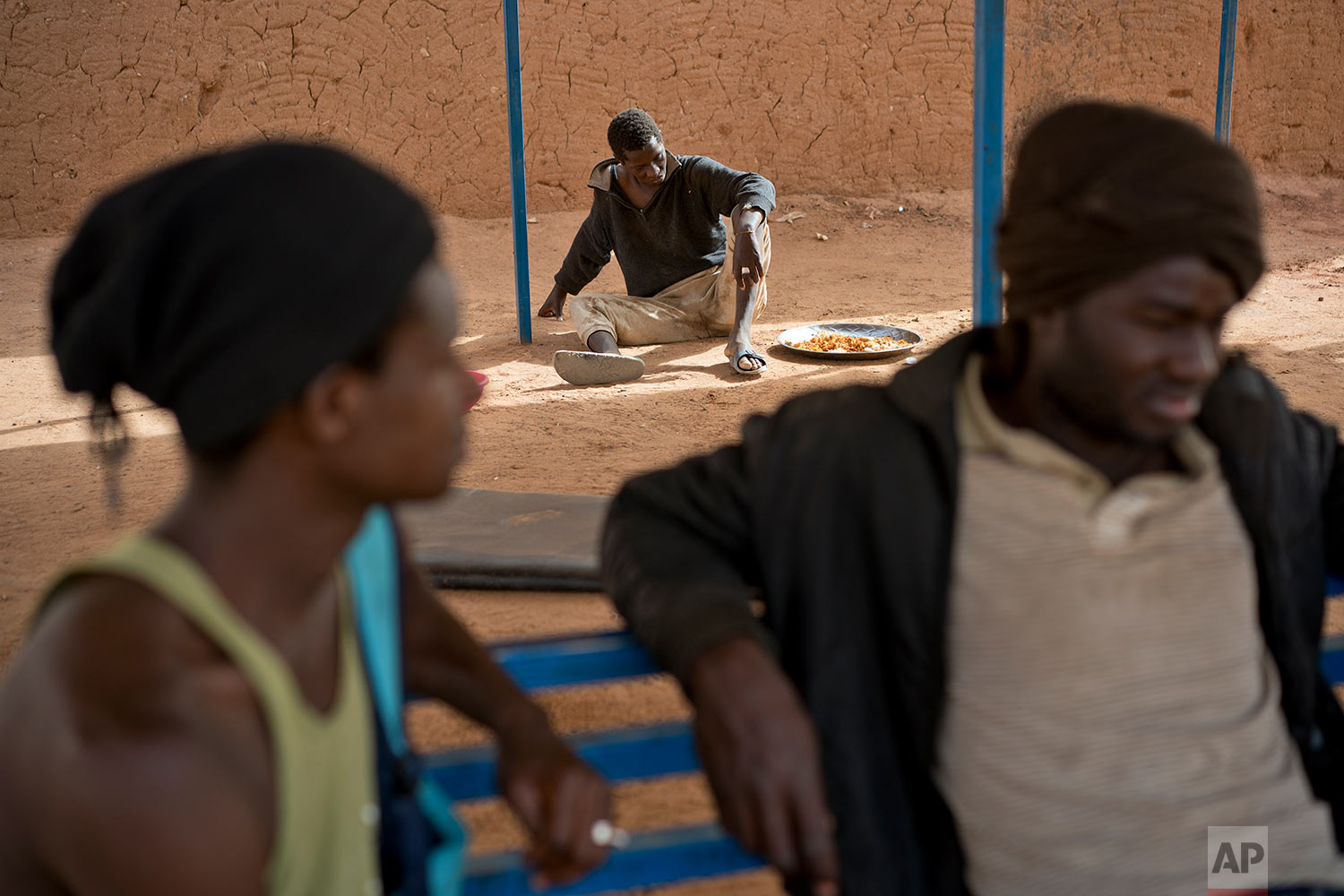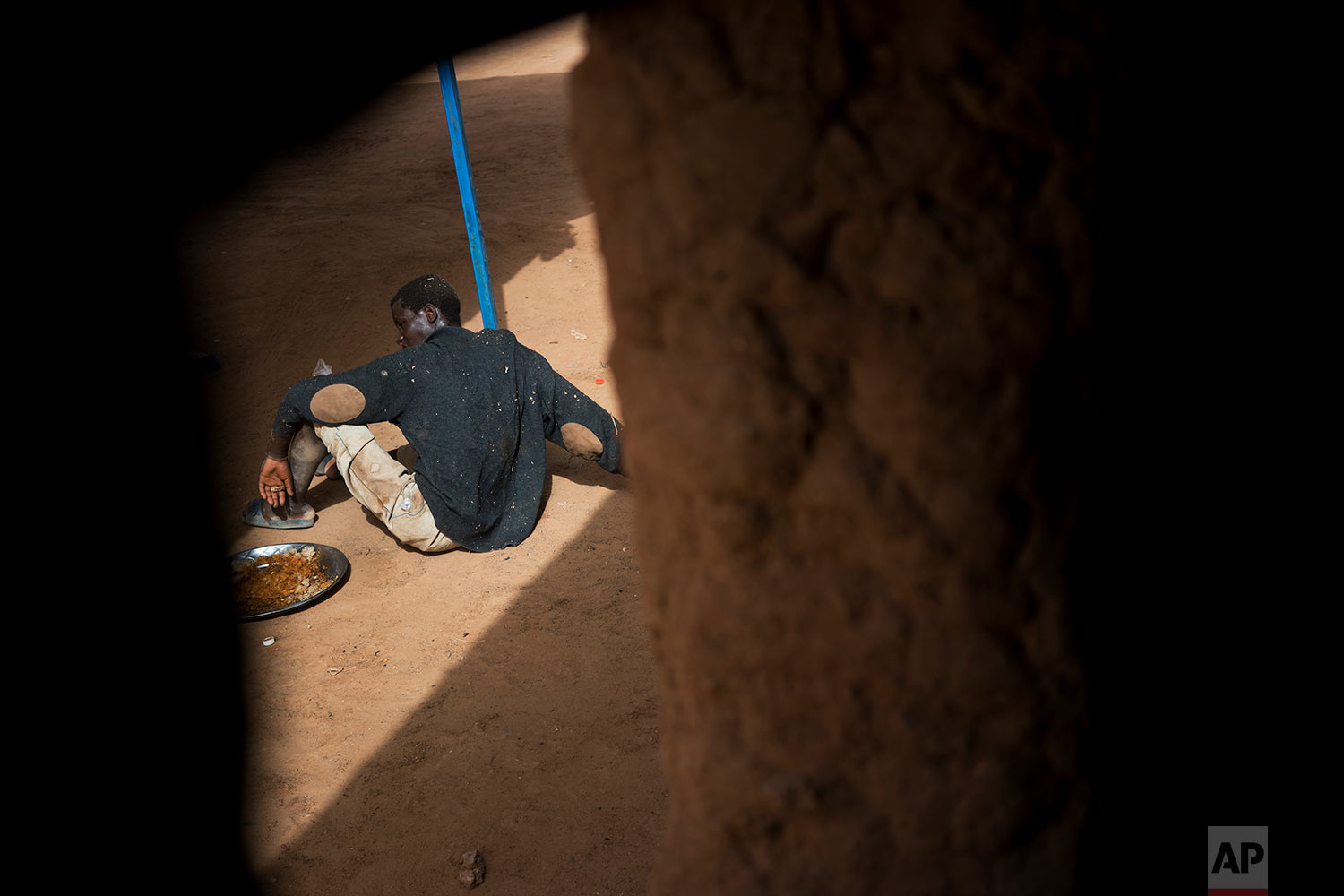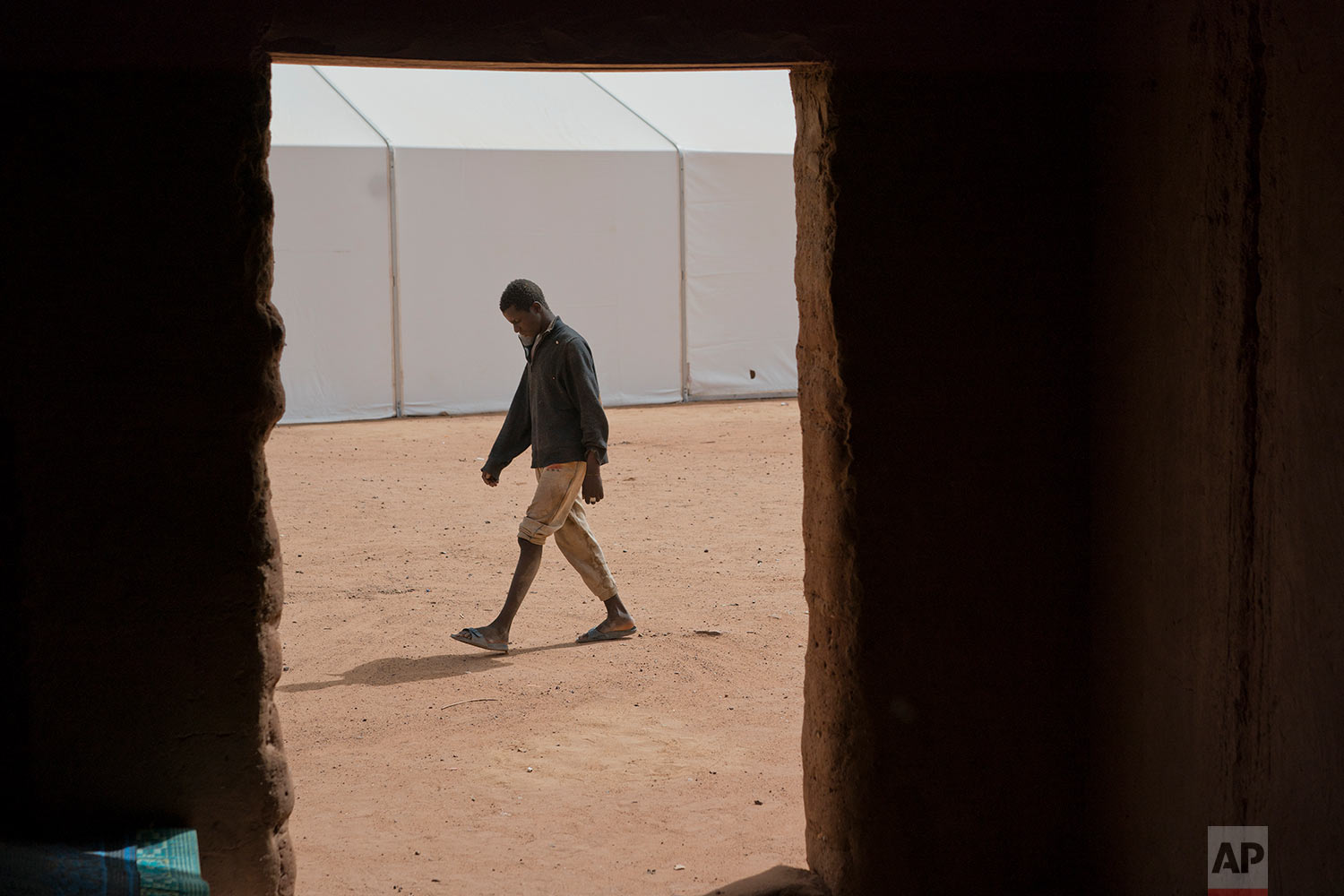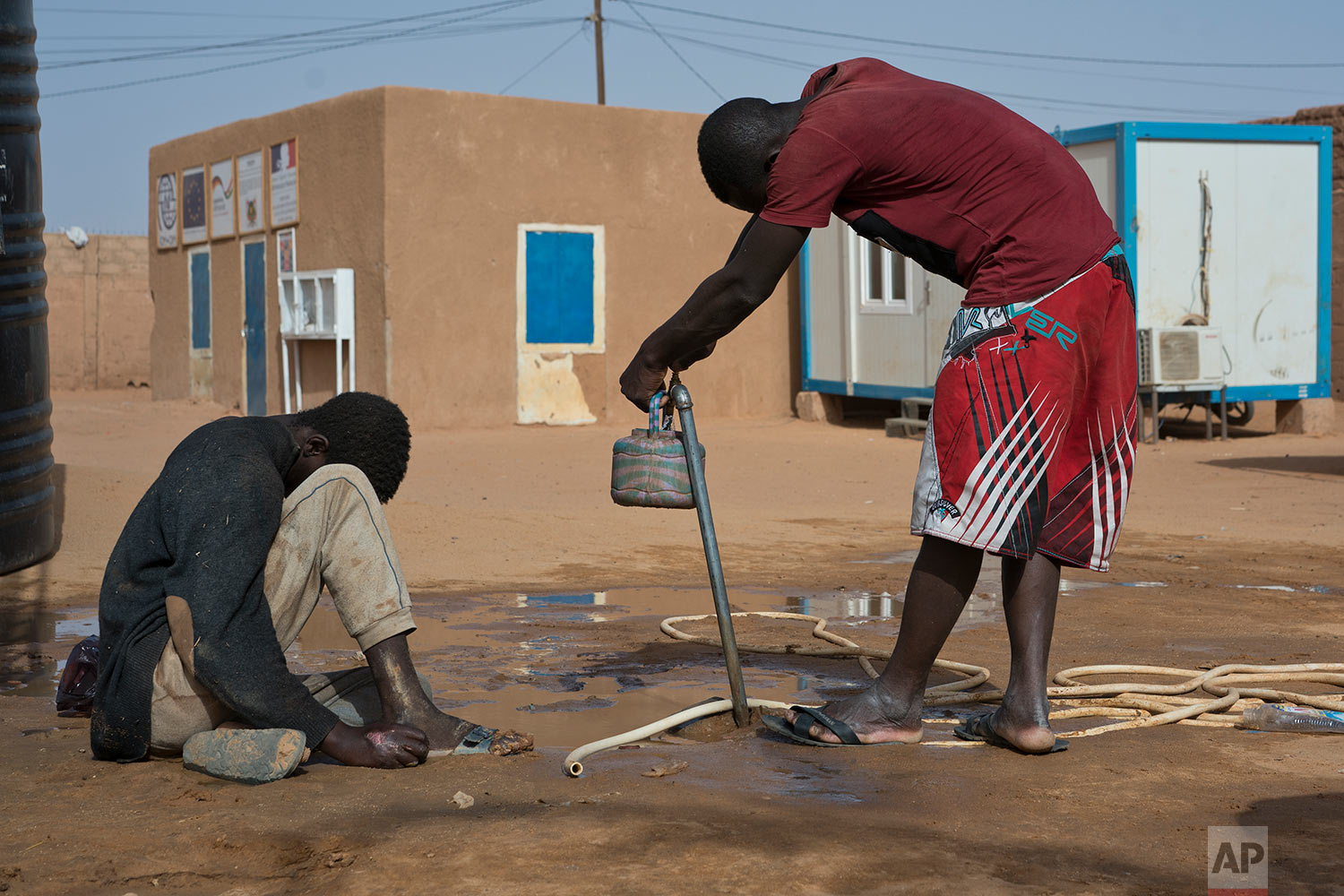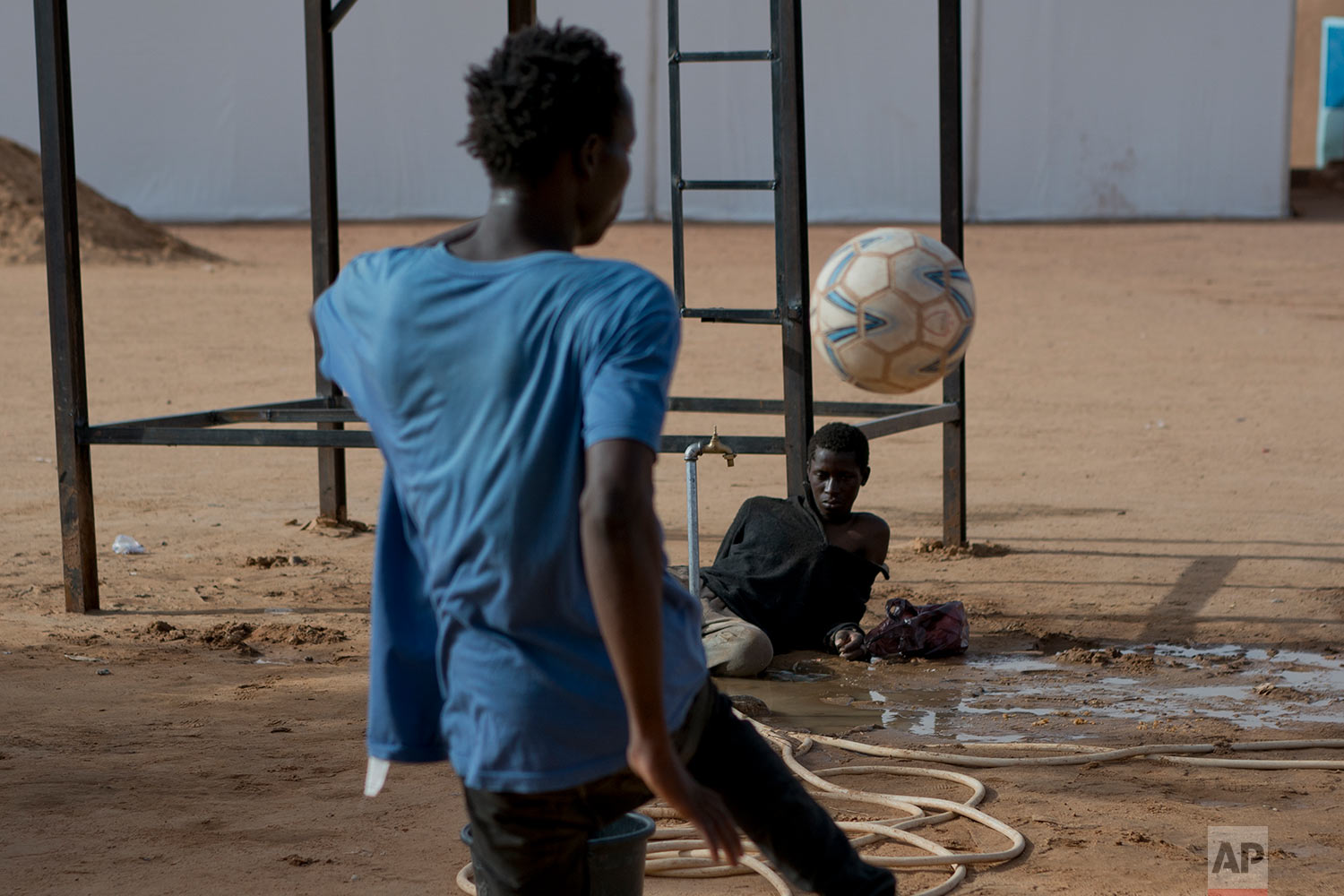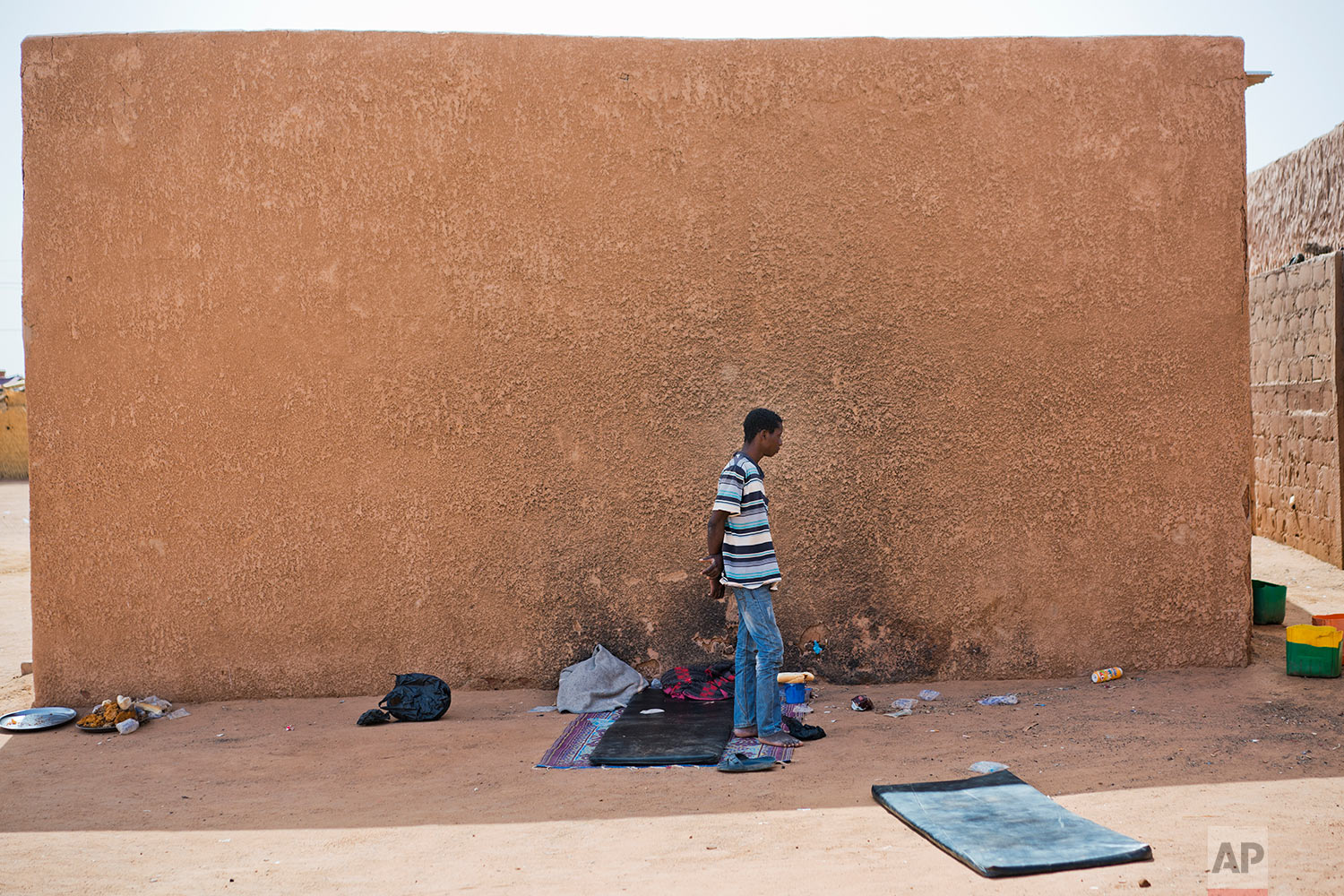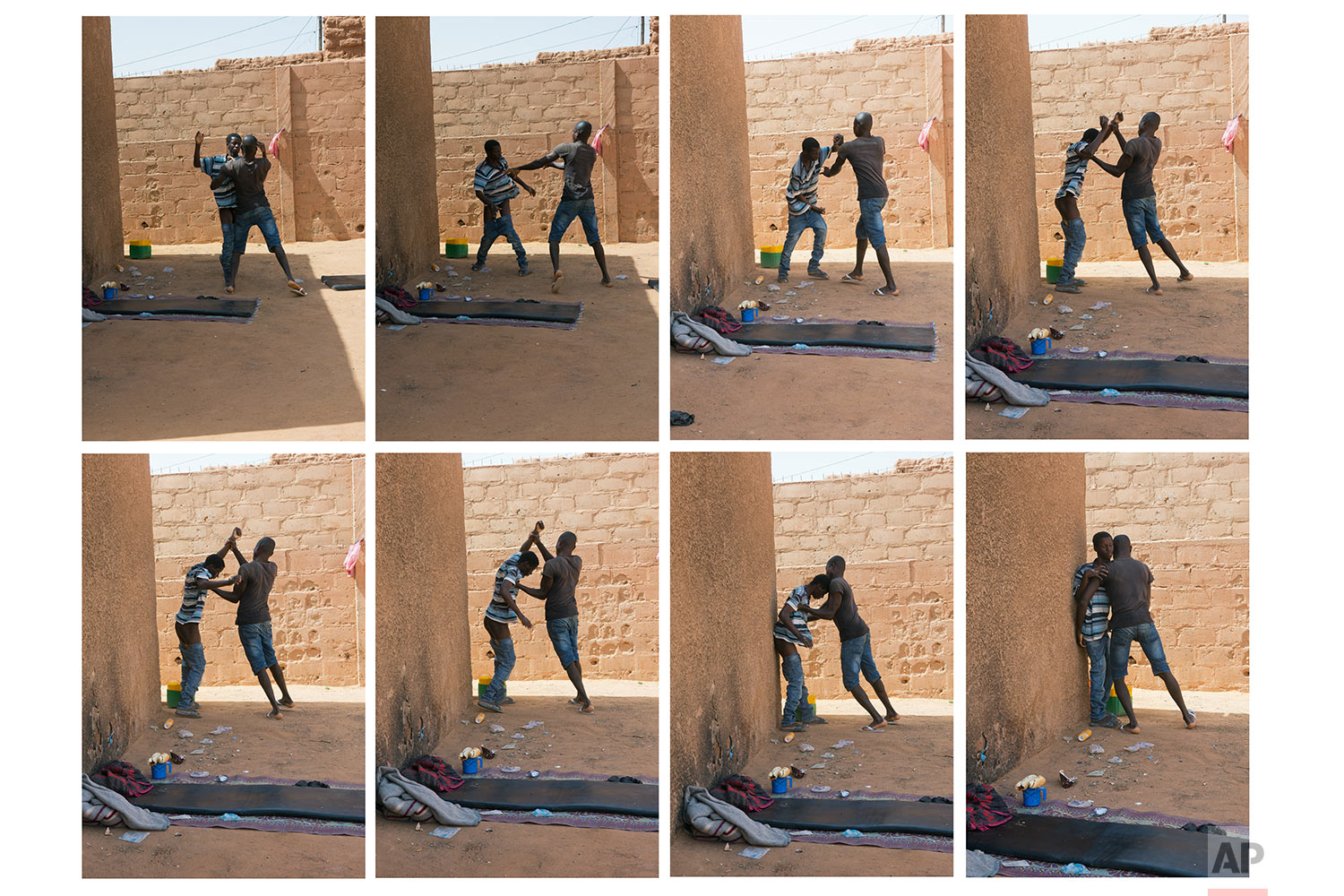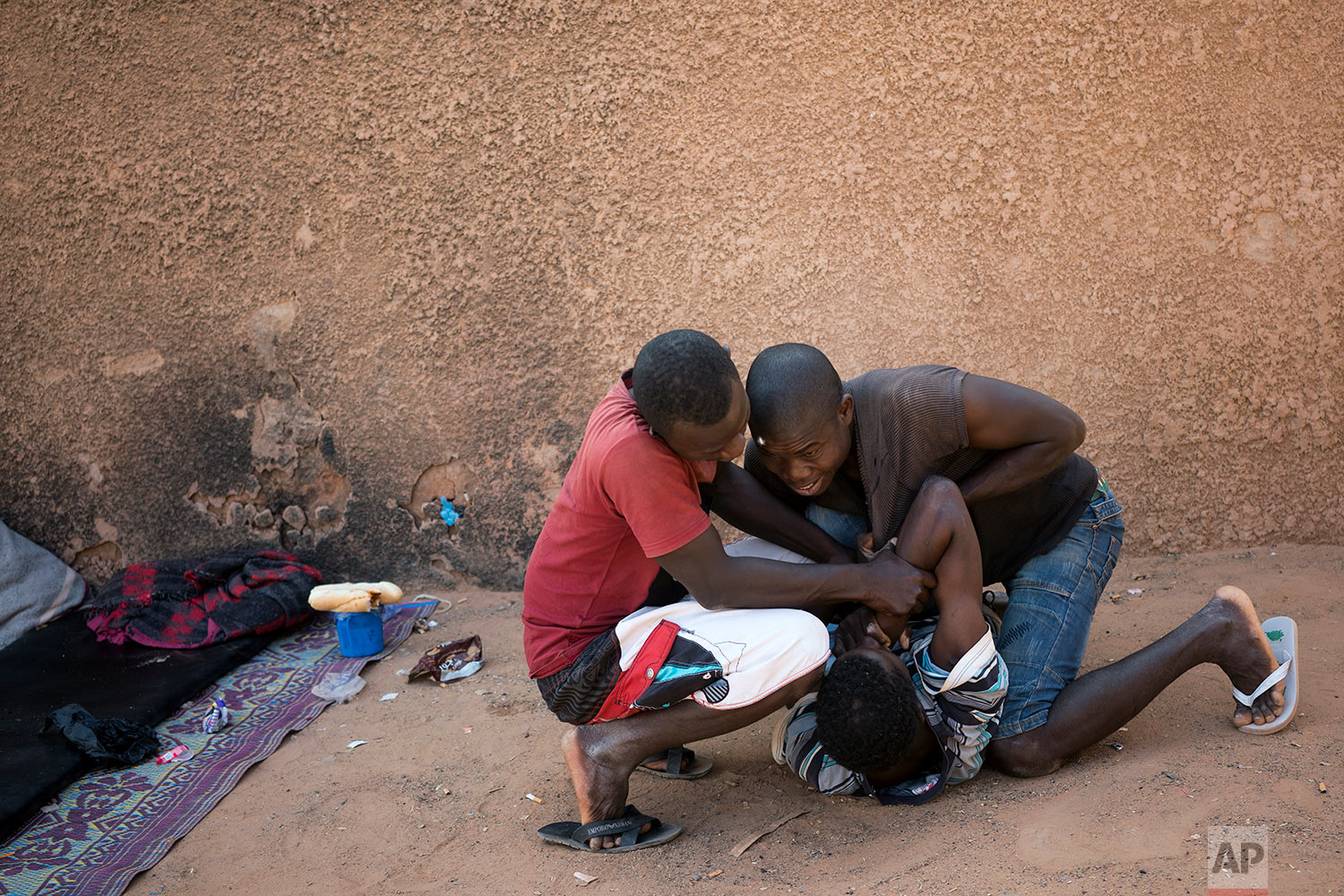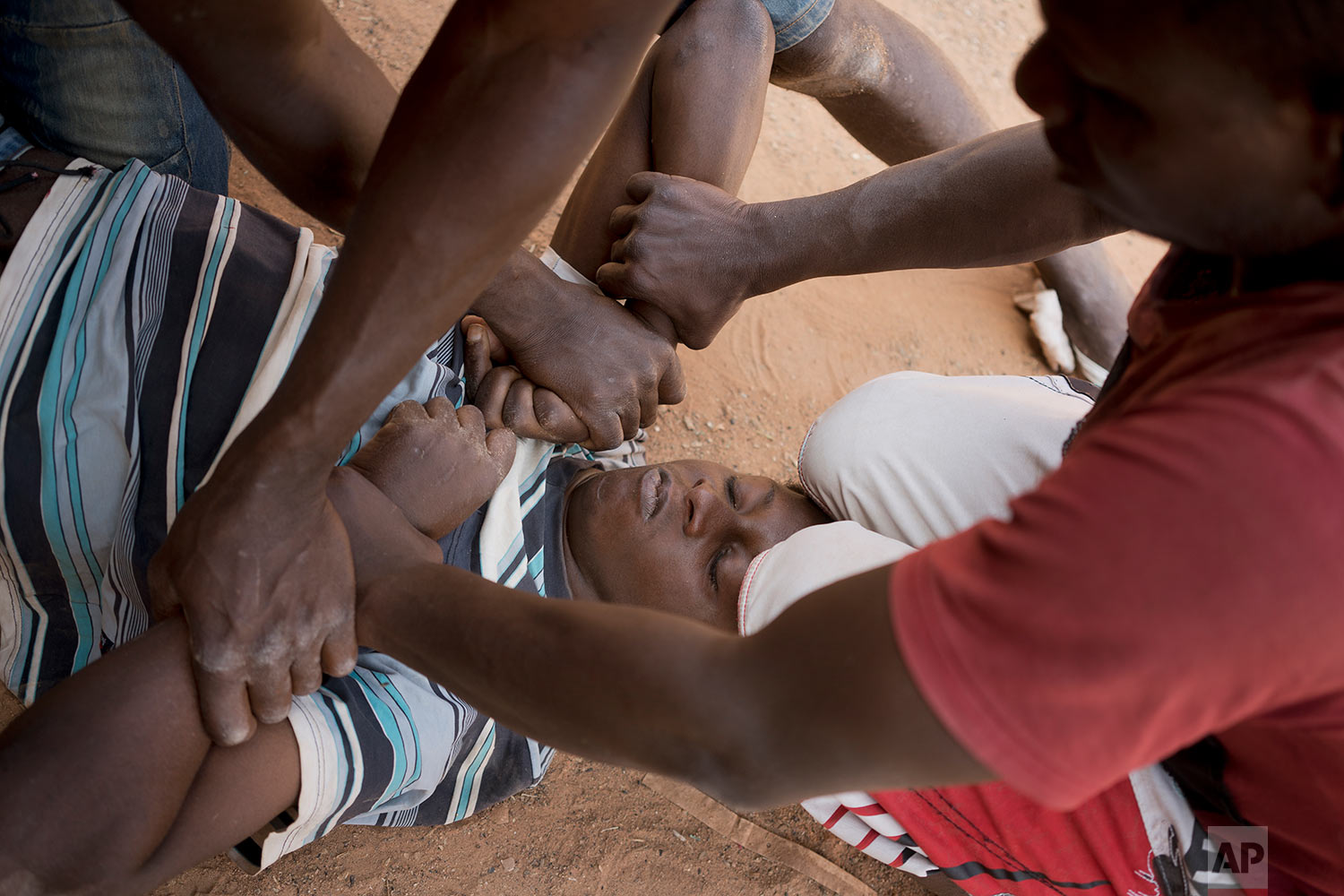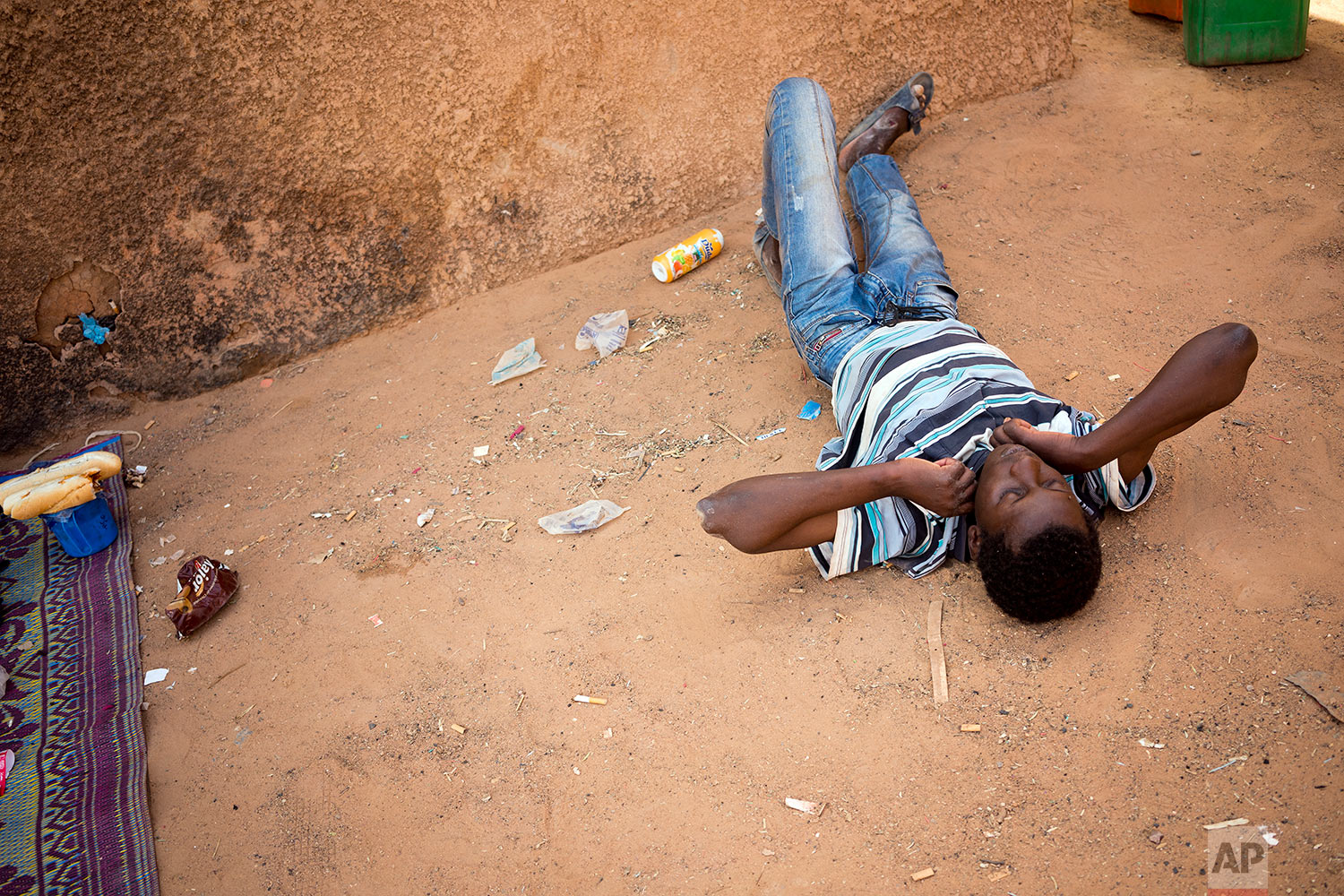Nameless migrant's silence enshrouds his story in mystery

The migrant holds a pole for hours on end, mutely standing or crouching.
In water-splashed dust, he sits by the faucet, rubbing at his leg until the scorching sun sets. He paces the camp, stops, paces more - eyes always cast down. He stares at the food brought to him by other migrants, at a wall - anywhere except at the other men and women around him.
“We think he might be from Guinea, he seems to stay close to the people who speak French,” said Aliou Kande, an 18-year-old migrant from Senegal. No one is sure because he doesn’t speak.
One afternoon in early June, he rose and started to undress in the midst of the compound. Gently and firmly, Kande and others restrained him and belted his trousers. They had spent the previous evening bathing him.
The only certainty about the man is that he was expelled from Algeria with thousands of others before ending up in this transit camp in Arlit, a decaying mining town in the heat of the Sahara.
With scars on his hands and arms, some assume he endured the unspeakable in Algeria, a place where migrants have been jailed, beaten and robbed by authorities before being abandoned at gunpoint in the Sahara Desert. He survived the forced walk to the Niger border post of Assamaka, where the International Organization for Migrations has picked up many of the expelled African migrants and taken them to the Arlit transit center.
From there, the IOM normally organizes transport home for the men, women and children who have been expelled. But with no name, confirmed nationality or family to claim him, the anonymous man was trapped in the Arlit compound.
His story remained trapped there as well.
Photos by Jerome Delay
Visual artist and Journalist

